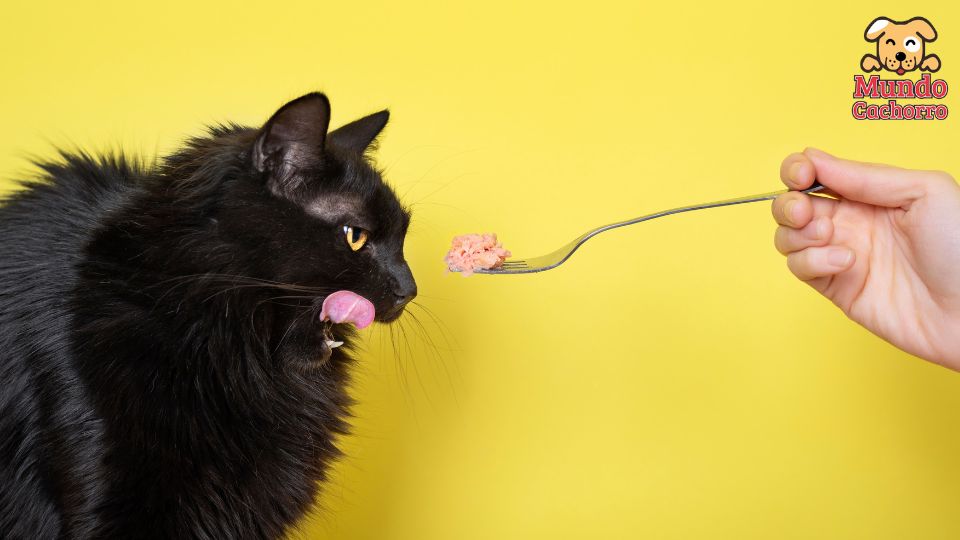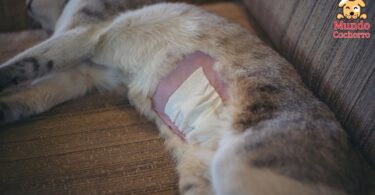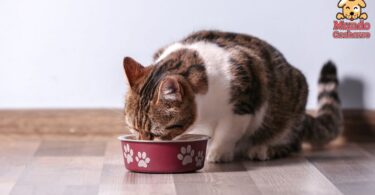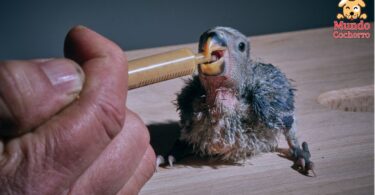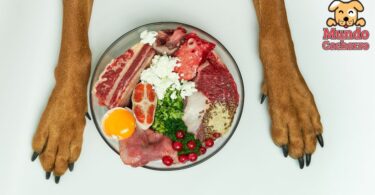Cats, as important members of our families, require a proper diet to stay healthy and happy.
However, many owners are unaware that some common household foods can be dangerous, and even deadly, for these felines.
Indice
It is essential to know which foods are prohibited for cats and why, in order to avoid serious health problems. The following are the main foods that should be kept out of reach of cats.
Chocolate: a dangerous enemy for felines
Chocolate, especially dark and confectionery chocolate, contains theobromine, a substance toxic to cats. Even in small amounts, chocolate can cause vomiting, diarrhea, heart problems and even convulsions. Theobromine affects the central nervous system of felines, and its ingestion could lead to a fatal outcome.
Symptoms of chocolate poisoning can take several hours to appear, making early intervention difficult.
Therefore, it is crucial to prevent cats from having access to any type of chocolate.
Onion and garlic: toxic to the blood system
Onions, garlic and chives contain compounds that can damage red blood cells in cats, causing hemolytic anemia. Consumption of these foods, even in small amounts, can lead to symptoms such as weakness, lethargy, and loss of appetite. In severe cases, anemia can be fatal if not treated in time.
Toxicity is not only present with raw onions and garlic, but also with cooked, dehydrated or powdered onions and garlic, so it is important to read the labels of processed foods that may contain these ingredients.
Milk and dairy products: myths and realities
There is a common myth that milk is good for cats, but the reality is different. Many cats are lactose intolerant, which means they cannot digest lactose properly, causing diarrhea and stomach upset. Although some cats can tolerate small amounts of dairy products, it is best to avoid them altogether or choose lactose-free alternatives designed specifically for pets.
Fermented dairy products, such as yogurt, are less problematic, but should be offered in moderation and only if the cat is known to tolerate them well.
Grapes and raisins: risk of renal failure
Grapes and raisins, although healthy snacks for humans, can cause kidney failure in cats. The exact mechanism of toxicity is not fully known, but it is known that even a small amount can cause vomiting, lethargy and eventually acute renal failure. Symptoms can appear within 24 hours and, if not treated quickly, kidney damage can be irreversible and fatal.
Therefore, it is vital to ensure that these foods are never within reach of cats.
Alcohol: deadly even in small doses
Alcohol, in any form, is extremely dangerous for cats. Even minute quantities can cause severe intoxication, affecting the central nervous system and causing respiratory depression, coma or death. Cats are much more sensitive to alcohol than humans, so they should never be allowed to ingest alcoholic beverages or foods cooked with alcohol.
In addition, products containing alcohol, such as liquid medications or certain cleaning products, should also be kept out of reach of pets.
Xylitol: lethal sweetener
Xylitol, an artificial sweetener found in many products such as chewing gum, candy and some diet foods, is extremely toxic to cats. Although most commonly associated with toxicity in dogs, it can also severely affect cats, causing a rapid release of insulin and a dramatic drop in blood sugar levels. This can lead to symptoms such as vomiting, loss of coordination and seizures, and can be fatal if not treated immediately.
Bones and thorns: mechanical hazards
Cooked bones and fish bones represent a physical hazard to cats. These objects can easily splinter and cause obstructions, internal lacerations or perforations in the gastrointestinal tract. Although cats enjoy chewing on bones and spines, it is best to provide them with toys or treats designed specifically for them that are safe and do not pose a health risk.
Coffee and tea: dangerous stimulants
Coffee, tea and other beverages containing caffeine are highly dangerous for cats. Caffeine can cause hyperactivity, tachycardia, muscle tremors and, in high doses, convulsions. Since cats are much more sensitive to caffeine than humans, even a small amount can be harmful.
In addition, many caffeine-containing products, such as energy drinks, may also include other stimulants that aggravate the situation.
Prevention is the key
Keeping cats away from these foods and products is essential to protect their health. Educating yourself about the dangers and taking preventive measures, such as keeping dangerous foods out of reach, can prevent veterinary emergencies. In the event that a cat consumes any of these prohibited foods, it is crucial to seek veterinary care immediately to minimize the risks.
A safe diet for a long and healthy life
Taking care of a cat’s diet involves much more than offering it balanced food. Knowing which foods can damage your health is essential to ensure that you live a long, healthy and happy life. Maintaining a proper diet and avoiding hidden dangers in certain human foods will contribute to their overall well-being, ensuring that our feline companions remain active and energetic for many years to come.


